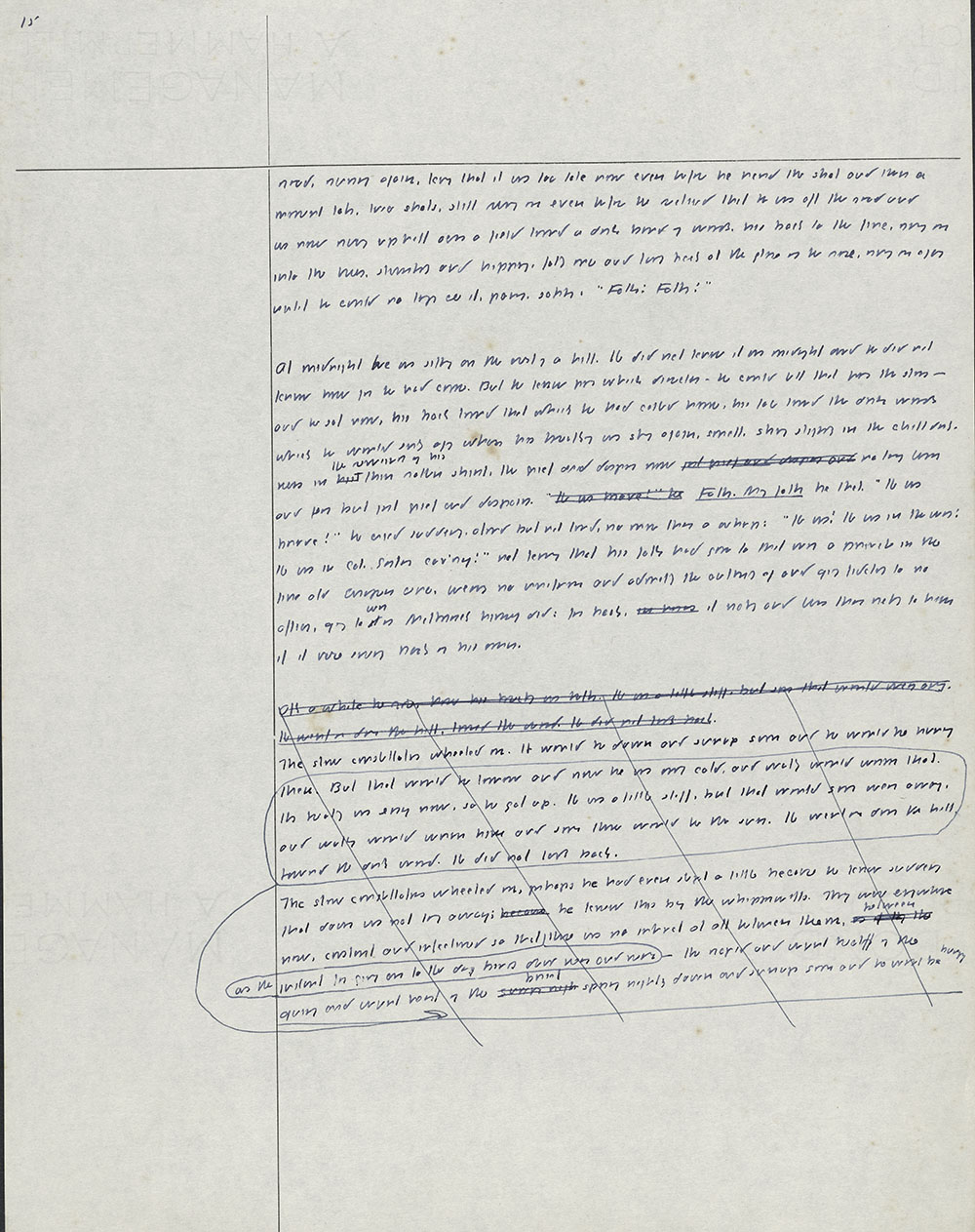TRANSCRIPTION
road, running again, knowing that it was too late now even before he heard the shot and then a
moment later, two shots, still running on even before he realized that he was off the road and
was now running up hill over a field toward a dark band of woods, his back to the fire, running on
into the trees, stumbling and tripping, falling once and looking back at the glare as he rose, running on again
until he could no longer see it, panting, sobbing: "Father! Father!"
At midnight he was sitting on the crest of a hill. He did not know it was midnight and he did not
know how far he had come. But he knew from which direction – he could tell that from the stars –
and he sat now, his back toward that which he had called home, his face toward the dark woods
which he would enter again when his breathing was strong again, small, shaking slightly in the chill dark-
ness in <[illegible]> the remainder of his rotten shirt, the grief and despair now <just grief and despire and> no longer terror
and fear but just grief and despair. "<He was brave!: He> Father. My father he thought. "He was
brave!" he cried suddenly, aloud but not loud, no more than a whisper: "He was! He was in the war!
He was in Col. Sartoris cav'ry!" not knowing that his father had gone to that war a private in the
fine old European sense, wearing no uniform and admitting the authority of and giving fidelity to no
officer, going to <it> war as Malbrouck himself did: for booty, <in horses> it nothing and less than nothing to him
if it were enemy booty or his own.
<<After a while he rose. Now his [breath was back?]. He was a little stiff, but soon that would wear away.
He went on down the hill, toward the wood. He did not look back.>>
<The slow constellations wheeled on. It would be dawn and sunup soon and he would be hungry
then. But that would be tomorrow and now he was only cold, and walking would warm that.
His breathing was easy now, so he got up. He was a little stiff, but that would soon wear away,
and walking would warm him and soon there would be the sun. He went on down the hill,
toward the dark wood. He did not look back.>
<The slow constellations wheeled on, perhaps he had even slept a little because he knew suddenly
that dawn was not far away; <<because>> he knew this by the whippoorwills. They were everywhere
now, constant and inflectioned so that
[insert: as the instant for giving over to the day birds drew nearer and nearer]
there was no interval at all between them, <<as if they the[?]>>
– the rapid and urgent beating of the
quiring and urgent heart of the <summer nigh> brief spring night, dawn and sunup soon and he would be hungry>
|


